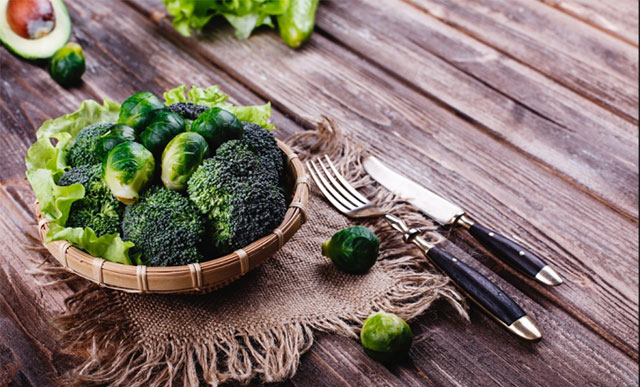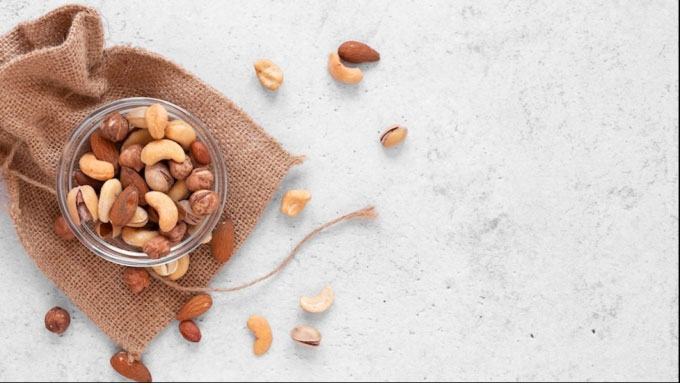Foods containing complex carbohydrates such as whole grains, nuts, and healthy fats do not spike blood sugar levels.
Foods That Do Not Raise Blood Sugar Levels
Diabetes is a condition where blood sugar levels are not well controlled due to insufficient insulin production or improper use of insulin by the body. This condition leads to excess sugar in the blood, which can result in serious health issues such as vision impairment, heart disease, and kidney problems.
Experts suggest that individuals with diabetes can manage their blood sugar levels by selecting foods that minimally impact blood sugar when planning their diet. Carbohydrates are essentially chains of sugars. When a person consumes foods containing carbohydrates, their blood sugar levels will rise. However, not all carbohydrates affect blood sugar levels in the same way.
Carbohydrates are primarily divided into two categories: simple carbohydrates and complex carbohydrates. While simple carbohydrates break down quickly and provide immediate energy, complex carbohydrates consist of long and intricate sugar chains, making them harder to break down. Because they take longer to digest, they do not cause a rapid spike in blood sugar levels. For those with diabetes, choosing foods with complex carbohydrates makes managing blood sugar levels easier.
Here are 9 types of foods that do not raise blood sugar levels.
Dark Leafy Greens
Dark leafy greens are rich in vitamins A, C, and K, as well as minerals like iron and calcium. They are low in carbohydrates and high in fiber, which helps control blood sugar levels. Dishes made from dark leafy greens, such as kale salads or soups, are excellent choices. Spinach or arugula can add a fresh crunch to savory breads…

Dark leafy greens rich in vitamins A, C, and K. (Image: Freepik)
Spices
Some spices have hypoglycemic effects, meaning they help lower blood sugar levels. Therefore, adding spices like cinnamon, turmeric, and ginger to meals can aid in controlling blood sugar at each meal.
Non-Starchy Vegetables
Similar to dark leafy greens, non-starchy vegetables are very high in fiber, low in carbohydrates, and blood-sugar-friendly, meaning they do not raise blood sugar levels. Examples of non-starchy vegetables include onions, mushrooms, zucchini, broccoli, celery, and Brussels sprouts.
Low Glycemic Fruits
Some sweet fruits with low glycemic indices, such as apples, pears, oranges, berries, and grapefruits, do not cause rapid spikes in blood sugar. Most of these fruits naturally have low glycemic indices because they primarily contain fructose and fiber.
Whole Grains
Whole grains are foods with low glycemic indices. Unlike processed, refined grains like white flour, whole grains are unrefined and primarily contain the germ and bran of the grain. Whole grains mainly provide fiber, which helps slow the release of sugar into the bloodstream.
Common whole grain foods include brown rice, quinoa, and oats. Oats have been shown to improve blood sugar control and insulin sensitivity, thereby helping to keep blood sugar levels low.
Additionally, legumes such as chickpeas, peas, and lentils, which are nutritious and have low glycemic indices, are great options for meals for individuals with diabetes. These legumes are high in fiber, which helps prevent blood sugar spikes as fiber slows down the digestion of food.
Healthy Fats
Fats help slow down digestion and the absorption of carbohydrates into the bloodstream. Including healthy fats in meals not only keeps you feeling full longer but also prevents spikes in blood sugar levels. Some healthy fats include olive oil, avocados, and nuts such as chia seeds, flaxseeds, sunflower seeds, and pumpkin seeds.

Nuts containing healthy fats. (Image: Freepik)
Proteins
Proteins, like healthy fats, play a role in slowing digestion and the absorption of carbohydrates into the bloodstream. Additionally, proteins take longer to break down, helping individuals feel full longer. Protein-rich foods include quinoa, beans, rice, soy products, eggs, and dairy products.
Sugar-Free Beverages
Sugary drinks are not healthy, especially for those trying to manage their blood sugar levels. Unlike natural sugars, the sugars found in sugary drinks are refined, and consuming these beverages can quickly cause blood sugar levels to spike.
Individuals needing to manage their blood sugar should drink more water instead of sugary beverages. Sugar-free sparkling water is also a better option to satisfy cravings for fizzy drinks without the worry of excess sugar intake.
Nuts
Nuts are filled with unsaturated fats and are often considered healthy fats. Research has shown that unsaturated fatty acids can play a role in controlling blood sugar levels by reducing insulin resistance. Nut varieties high in unsaturated fats include walnuts, almonds, pecans, and peanuts.


















































